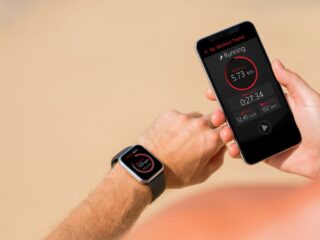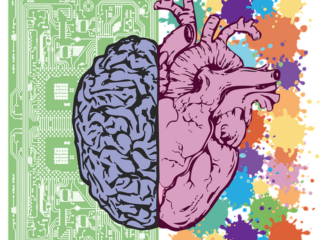Healthcare startups are gaining traction in the US, with many companies popping up to offer services that can improve patient care. To stay competitive, healthcare startups must find ways to streamline operations and cut costs, but this is no easy task.
The digital transformation in healthcare 2021 is a trend that will streamline operations for startups. This article discusses 3 technology trends that are driving this change.

The healthcare industry is changing at a breakneck speed, and the startup environment is one of the primary drivers for this.
If you look at some of the most significant developments in healthcare technology over the past decade, you’ll see a significant increase in the role startups play in the industry. These surfacing businesses are adaptable, lean, and focused, and they will continue to influence the industry on a worldwide basis in the future.
Technology has been the most important driver of startup success, and it is one of the main reasons why the entire digital health industry in the United States is expected to reach $90 billion by 2022.
We’ll look at how technology is assisting healthcare entrepreneurs in streamlining operations and improving overall care quality. These are trends to be aware of if you’re launching or managing a healthcare startup.
Table of Contents
Toggle1. Artificial intelligence for increased efficiency and speed
Artificial intelligence (AI) advancements are allowing companies to simply automate everything. To analyze a patient’s medical history, data is collected utilizing a Natural Language Processing (NLP) method. It enables you to compare data that has already been put into the system, such as historical data and medical knowledge. Finally, all of this data will be compiled into a digital assistant.
This method aids in the maintenance of doctor and hospital office capacity. Because the sufferer does not have to leave their house, the danger of infecting others or being sick is reduced. This is particularly useful during a pandemic or public health emergency, such as the one we’re experiencing right now.
Sopris Health, headquartered in Denver, uses an artificial intelligence-powered system to automate the process of classifying, collecting, recording, and evaluating patients’ health histories, symptoms, and feedback. Clinicians may quickly examine the patient and collect observations and comments using a smartwatch/ smartphone transcribing app. Instead of taking continuous notes to subsequently create documentation, this active transcribing improves the accuracy and efficiency of the operation.
Utilizing technology and deploying it to simplify your customers’ workflow is the greatest option for businesses looking to expand and get visibility. Not only does it improve patient care, but it also increases the provider’s speed and efficiency. The more quickly and precisely your company can offer answers, the more likely it is to expand.

2. A data-driven approach to better health care
By facilitating contact between patients and doctors through online portals, email, and text messaging, technology contributes to patient-centered care. It also gives them more access to important information sources like online medical records, which may help them manage their own health and give them more control.
In the form of a smart patient assistant, healthcare technology has the ability to create mutually beneficial and long-term connections with patients. This is particularly beneficial for those who have chronic illnesses that need long-term distant treatment.
Grand Rounds, a San Francisco-based company, functions as a healthcare assistant, connecting workers with high-quality medical treatment via their insurance network. Data science is used by the company’s platform to quickly connect an employee with the appropriate expert in their network. The app also includes customized medical reading recommendations and advice, as well as an activity stream that tracks medical expenditure in real time.
The Grand Rounds team, for example, integrates technology, clinical knowledge, and data to connect and direct individuals to the best possible healthcare. Identify methods to improve patient care by using the potential of customized care technology for your healthcare business to thrive.
3. A connected environment that yields quicker outcomes
Healthcare, being one of the most significant sectors today, must seek out solutions that allow for effective data sharing. The aim is to assist patients in eliminating the need to transport their medical records from one institution to another. Interoperability — the capacity for computers and software to share and utilize information — is the foundation for better care.
According to a new research, a strong primary care system may help prevent disease, save health-care costs, and coordinate patient care across different physicians. Fruitful communication and interoperability are critical components of such a system. Physicians are often needed to interact and share information with hospitals, specialists, other care venues, social support providers—and, of course, patients themselves—in order to guide patients’ needs.
Mobileoptx, a medical device company, has created a unique hardware solution that allows doctors to record endoscopic exams using an iPhone.
The company’s hardware solution, on the other hand, lacked a mobile app that would allow doctors and other members of the clinical care team to make meaningful use of the recordings gathered at the point of treatment. Physicians were taking pictures or video recordings with their iPhone’s native camera and then sending them to their phone’s messaging or email apps for additional examination.
MobileOptx approached Sempercon, an app development firm, for advice on how to link their physical gadget to the internet. They intended their mHealth app to allow doctors to digitally exchange and preserve endoscopic exams that included high-resolution pictures and/or video data.
After that, the latter went through the technical and procedural prerequisites for connecting their medical equipment to the internet. This was more than just a mHealth project for Sempercon; its engineers created a plan for delivering a smart IoT solution.
Your service/solution must allow interconnection between devices, software, and companies when you establish your healthcare business. If you don’t have the resources to do so, look for prospective partners who can help.
To prosper, take use of technology.
Startups looking to carve out a position in the healthcare industry must continuously search for new methods to reimagine the feeling of connection between healthcare providers and patients. Any concept based on this reasoning and supported by technology will aid them in moving ahead and forging their road to success.
You’ll need to create a business plan if you want to effectively establish your own healthcare company using technology. To get started, go through our collection of Medical & Health Sample Plans or use a step-by-step planning tool like LivePlan.
The digital transformation in healthcare 2020 is a trend that will streamline operations for startups.
Frequently Asked Questions
What technology trend is currently transforming healthcare?
Artificial intelligence and machine learning are currently transforming healthcare.
What are technology trends that have an impact on patient care?
The most common trends in technology that have an impact on patient care are the increased use of digital tools and the rise of artificial intelligence.
What trends are emerging in technological innovation and health?
The trend in technological innovation and health is towards more personalized care. With the advent of technology, people are able to monitor their health more closely than ever before. This allows for better treatment options for patients with specific needs.
Related Tags
- healthcare technology trends 2020
- healthcare technology trends 2021
- digital health technology examples
- digital transformation healthcare mckinsey
- digital technology in healthcare pdf








































































































